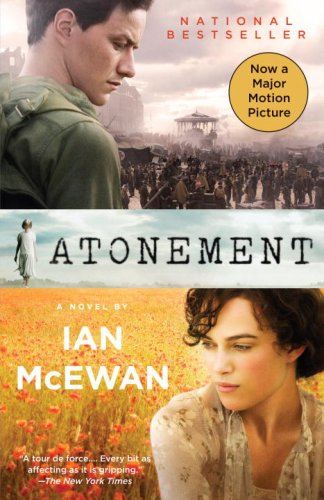All Nonfiction
- Bullying
- Books
- Academic
- Author Interviews
- Celebrity interviews
- College Articles
- College Essays
- Educator of the Year
- Heroes
- Interviews
- Memoir
- Personal Experience
- Sports
- Travel & Culture
All Opinions
- Bullying
- Current Events / Politics
- Discrimination
- Drugs / Alcohol / Smoking
- Entertainment / Celebrities
- Environment
- Love / Relationships
- Movies / Music / TV
- Pop Culture / Trends
- School / College
- Social Issues / Civics
- Spirituality / Religion
- Sports / Hobbies
All Hot Topics
- Bullying
- Community Service
- Environment
- Health
- Letters to the Editor
- Pride & Prejudice
- What Matters
- Back
Summer Guide
- Program Links
- Program Reviews
- Back
College Guide
- College Links
- College Reviews
- College Essays
- College Articles
- Back
Atonement
She spoke slowly. “I'm very very sorry. I caused you such terrible distress.” They continued to stare at her, and she repeated herself. “I'm very sorry.”
-Atonement by Ian McEwan
Part Three Page 329
How can one child's misinterpretation of events lead to the destruction of two lives? In Ian McEwan's Atonement, this inquiry is explored when naïve and imaginative thirteen-year old writer Briony Tallis accuses her sister's lover of a false crime setting forth a domino effect that is witnessed throughout the book. This novel, which is split into four distinct yet intertwined parts, spans sixty four years, beginning in Summer 1935, just before the start of World War II, and ending in 1999, when Briony is in her late seventies. Although this book contains many specific settings, the story takes place primarily in England, with Part Two taking course in France. The entire story watches close the repercussions of Briony's mistake and her attempts at making amends for her sin.
When Atonement begins, Briony Tallis, a clean, wealthy youngest child growing up in mansion in the countryside while on school holiday, is preparing for the production of her play The Trials of Arabella, in which her cousins are meant to act with her. It is revealed that this her first play, though she has written many short stories before, and she has spent so much time working on it as it is meant to welcome her elder brother home. Briony's older sister Cecilia, the youngest Tallis' complete opposite, is back from college for the break, and the close family friend and manservant Robbie Turner is back, as well, for the Summer. Throughout the short time in which they are all together, many important events occur, including Leon, Briony and Cecilia's older brother, and his friend Paul Marshall's arrival, the confrontations and flirtations of Robbie and Cecilia, and the horrible crime committed against the Tallis' fifteen year old cousin, Lola. As Robbie is arrested on the basis, alone, of Briony's false testimony against him, which her incomplete grasp of several situations causes her to believe, Cecilia is the only one, besides his own mother, that declares his innocence.
The following part, Part II, of the novel follows Robbie as he roams across France, in the midst of the Second World War, as a soldier, searching for safety. Part III takes place almost simultaneously, with Briony working as a nurse, seemingly to atone for the sin “growing up” has caused her to realize she made, in England. At the conclusion of this section, Briony meets with Robbie and Cecilia and tells them of how she plans to remedy the distress she has caused. The final part, Part IV, takes place in London in 1999, from Briony's, a successful writer suffering from vascular dimentia in her late seventies, point of view. During this part of the novel, it is revealed that Briony is the author of the previous three passages, along with numerous other secrets I am unwilling to disclose.
Although this novel explores many mature and sometimes frightening topics, I really enjoyed and recommend it to all those who believe they can handle a vast number of extreme concepts and are thirteen and up. I read it when I had just become a teenager and found that conversing about certain passages with my parents helped me get through the difficult parts. Overall, I can conclude I was attracted to this novel because of its lush descriptions, and my ability to relate to its lead character, Briony, because I, too, am a thirteen-year old writer who sometimes allows her imagination to run away with her. It was interesting, too, to read and learn about World War II. Perhaps my favorite part of this novel was its dedication to showing each event from diverse points of view and acknowledging how, as humans, we often tend to overanalyze and create drama. In short, this book is fantastic, and I strongly recommend it to teens and adults who can handle mature subject matter. The tension caused by the socializing of various people and groups that Ian McEwan brings to every page is, might I say, quite addictive!
Similar Articles
JOIN THE DISCUSSION
This article has 0 comments.

